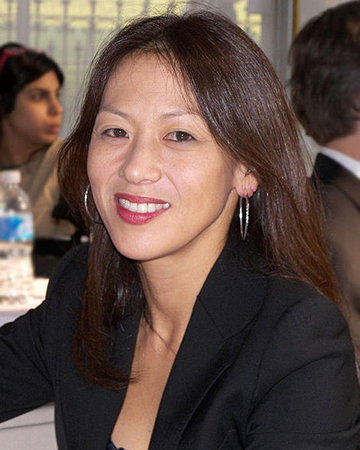‘Tiger mom’ stirs angry controversy with child-rearing memoir

By Rainbow Ho
Contributing writer
All eyes are on Amy Chua, Yale law professor and “Tiger Mom,” as her latest book “Battle Hymn of the Tiger Mother” has stirred up controversy.
A memoir about her Chinese parenting methods, the book made its way to the top of the best-sellers list. Little did she know that her work would inspire a wave of criticism.
Shortly after an excerpt was published on the Wall Street Journal’s website, the site was flooded with thousands of disapproving comments from outraged readers for the severe parenting method described in the book.
Chua’s tactics detailed in the book include threatening to burn her youngest daughter’s stuffed animals, prohibiting sleepovers and play dates and rejecting her daughters’ work if it is less than perfect — whether it be a birthday card or a math test.
Readers should keep in mind that Chua’s memoir is a narrative that carries a fistful of satire.
Although born in the U.S., Chua was raised by her parents in what she calls the traditional Chinese way. To raise her two daughters, Sophia and Lulu, she employed her parents’ style, which has been summed up by the media as strict, harsh and over-demanding.
Minh-Hoa Ta, interim dean of instruction and former director of the Asian Pacific American Student Success program at City College, believes that Chua’s story is simply one of the cases that the media has chosen to single out.
“I believe that there are many other parents raising their kids in a similar way, but most Chinese parents nowadays do not go to extremes,” Ta said.
Many expressed distaste for the Chinese parenting theory, which may be due to readers being only partially informed. As an Asian-American with years of experience counseling Asian-American students at City College, Ta said that most of the students that she meets at City College are brought up in ways that differ from Chua’s.
“The American media tends to generalize and label the Chinese,” Ta said. “In movies, women are mainly depicted as dragon ladies, and now Chinese mothers are viewed as tiger moms.”
According to Ta, the media focuses on negative elements of individual cases to gain attention, without providing the full picture.
“Not all Chinese are like that,” she said.
Numerous factors account for variations in parenting methods, such as educational backgrounds, social and religious influences and regional differences. For instance, China’s one-child policy may cause parents to devote more effort and time to nurturing children.
“There are many cases where parents in other countries raise their children like Amy Chua, not just Chinese,” Ta said.
Ta believes it is unfair for the media to portray Chinese parents as overly demanding, because more subtle facets of their parenting are not highlighted.
Many Chinese-American children are brought up in environments where they are well-respected, protected and encouraged by parents with reasonable expectations. Chua’s case is one that happens to be in the spotlight, but is certainly not one that best represents the parenting style of the entire Chinese population.
“This is only one woman’s story – it does not represent the whole Chinese-American story,” Ta said.
In a recent interview with People Magazine, Chua admitted to a transformation in her attitude towards her daughters by allowing them more freedom.
With the ongoing debate, perhaps it is best not to generalize. Different families have various ways of nurturing their children.
Or, as Chua puts it, “There are many ways of raising great kids.”
Email:
email@theguardsman.com

Comments are closed.